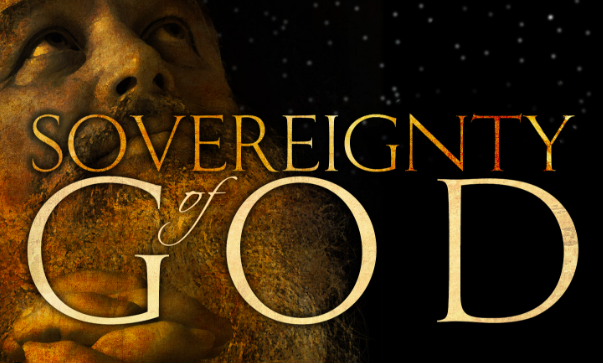The question of free will and God’s sovereignty is one of the most profound and complex theological discussions within Christian belief. On one hand, Christians believe in the omnipotence and omniscience of God, which implies His complete control and knowledge of all events. On the other hand, humans are endowed with free will, the ability to make choices and decisions independently. This apparent paradox has puzzled theologians and believers alike for centuries. In this article, we will explore the intricate relationship between free will and God’s sovereignty in Christian theology, attempting to reconcile these seemingly opposing concepts.
Understanding God’s Sovereignty
In Christianity, the idea of God’s sovereignty revolves around the belief that God is the ultimate authority and ruler over all creation. He is all-powerful, all-knowing, and has complete control over the universe. This concept finds its foundation in numerous biblical passages, such as Psalm 103:19, which states, “The Lord has established His throne in the heavens, and His kingdom rules over all.”
The Bible also emphasizes God’s providence, the notion that He is actively involved in guiding and governing all events in the world. A well-known verse that reflects this is Romans 8:28, “And we know that in all things God works for the good of those who love him, who have been called according to his purpose.”
The Gift of Free Will
Simultaneously, Christianity teaches that God created humans in His image and endowed them with free will. The story of Adam and Eve in the Garden of Eden exemplifies this. God gave them the freedom to choose between obedience and disobedience, leading to the moral responsibility of their actions. Throughout the Bible, numerous instances demonstrate God’s acknowledgment of human choices, such as Deuteronomy 30:19, “I have set before you life and death, blessings and curses. Now choose life, so that you and your children may live.”
The Paradox and Attempts at Reconciliation
The apparent conflict between God’s sovereignty and human free will has been a subject of intense theological debate throughout history. Several schools of thought have emerged, each attempting to reconcile these concepts.
- Calvinism and Predestination: One perspective, rooted in the teachings of John Calvin, holds that God’s sovereignty is so absolute that He predestines everything, including the salvation or damnation of individuals. According to this view, human free will is limited to choosing what aligns with God’s divine plan.
- Arminianism and Conditional Election: Conversely, the Arminian perspective, named after Jacob Arminius, emphasizes human free will and argues that God’s sovereignty does not negate individual responsibility. They propose that God’s election for salvation is conditional upon human acceptance of His grace.
- Molinism and Middle Knowledge: Another attempt at harmonizing free will and God’s sovereignty comes from Luis de Molina. Molinism suggests that God possesses “middle knowledge,” allowing Him to know all possible choices humans could make in any given circumstance. He then actualizes the world where humans freely choose according to His sovereign plan.
Embracing the Mystery
Despite the various theological frameworks and interpretations, the full comprehension of how free will and God’s sovereignty coexist remains elusive to human understanding. Some theologians argue that attempting to fully resolve this paradox is beyond the scope of human intellect. They contend that such mysteries are inherent in a transcendent God, whose ways and thoughts surpass our own, as expressed in Isaiah 55:8-9, “For my thoughts are not your thoughts, neither are your ways my ways, declares the Lord. As the heavens are higher than the earth, so are my ways higher than your ways, and my thoughts than your thoughts.”
Instead of attempting to fully grasp the incomprehensible nature of God, Christians are encouraged to embrace the mystery and complexity of these beliefs. The tension between free will and God’s sovereignty can lead to a deeper sense of humility, reliance on God, and trust in His wisdom.
Conclusion
The interplay between free will and God’s sovereignty is a multifaceted topic that has captivated theologians and believers for centuries. As Christians, the recognition of God’s sovereignty alongside the gift of free will creates an intricate and profound understanding of our relationship with the Divine. While various theological perspectives attempt to reconcile these concepts, the mystery remains, reminding us of the vastness of God’s wisdom and the limitations of human comprehension. Ultimately, embracing this paradox can lead to a deeper appreciation of faith, trust, and humility in the presence of an almighty and loving God.
